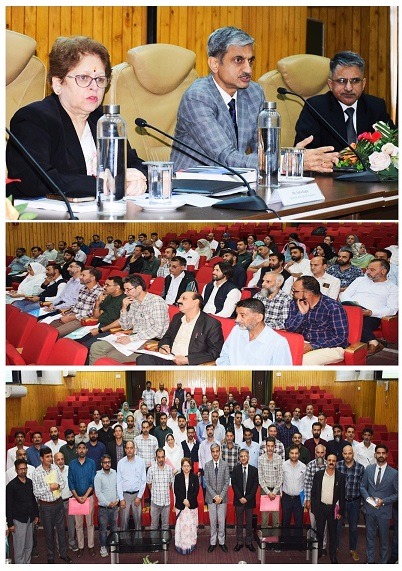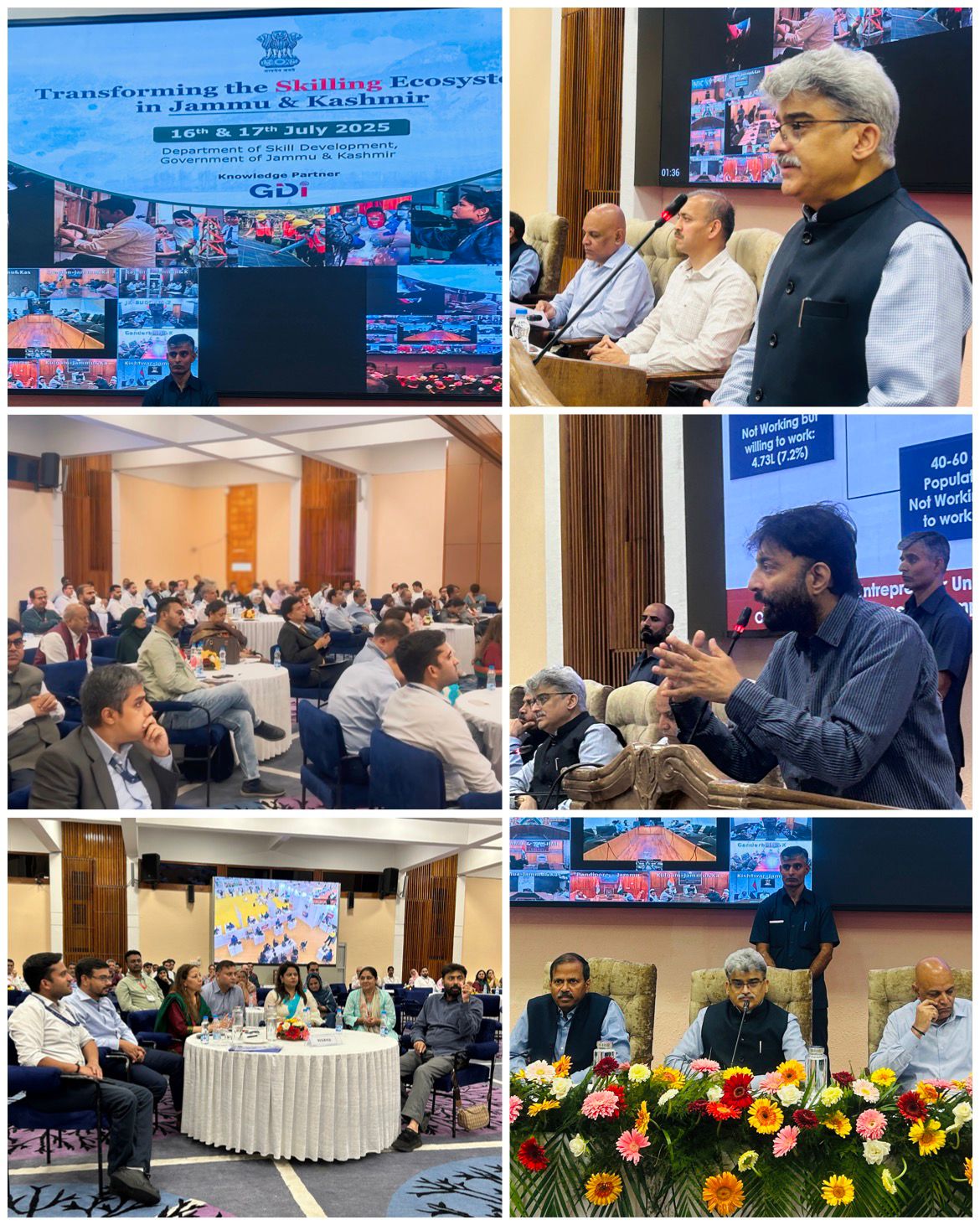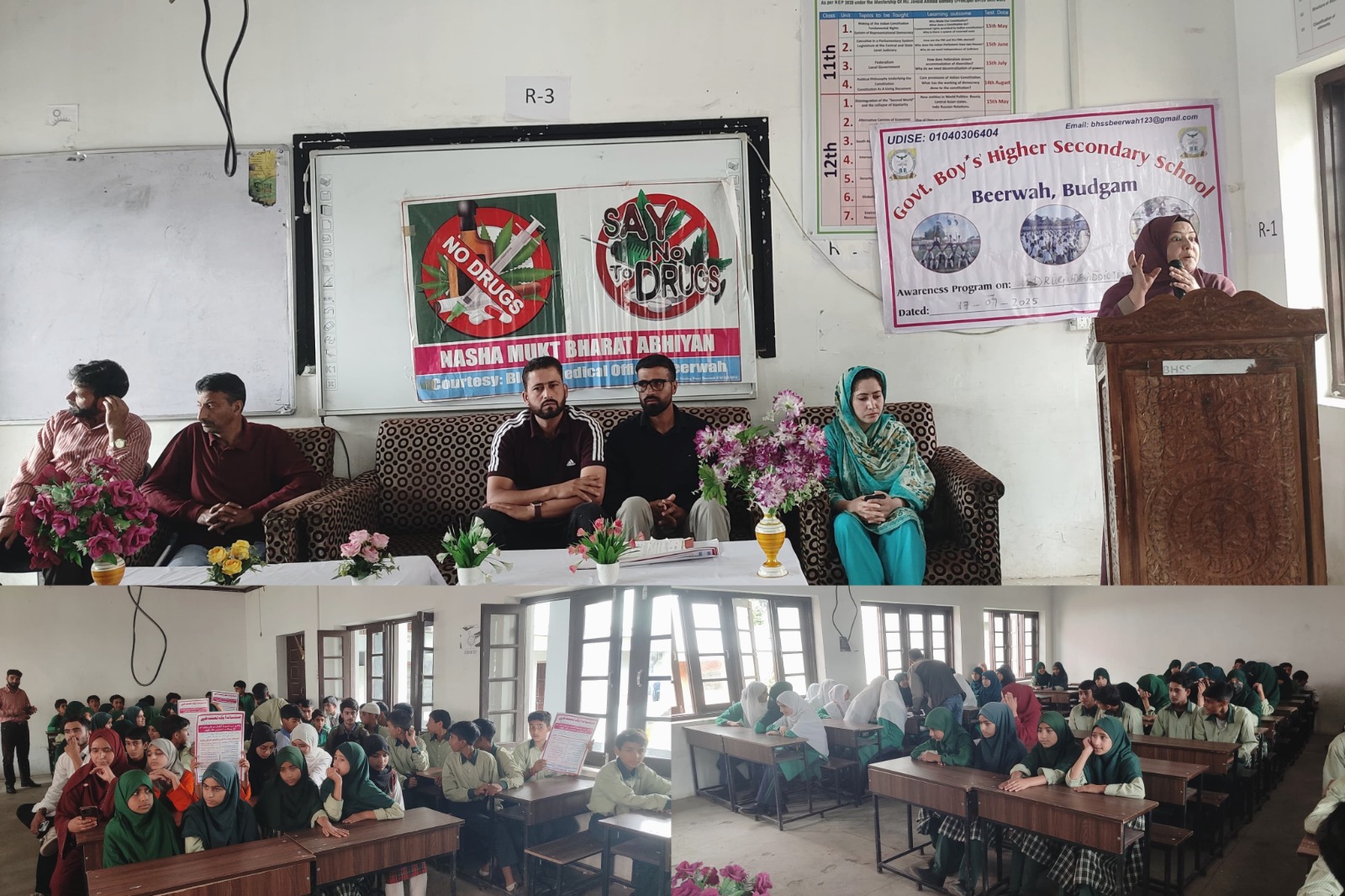SRINAGAR,: A one day special training programme on ‘Civil Services Regulations (CSR); Execution of Warrants, Carrying Out Attachment, Sale & Other Official Duties for Executing Orders of the Execution Court’ was organized today at J&K Judicial Academy, Mominabad, Srinagar, for Accounts Officers and Nazirs of various courts of Kashmir Province and the Union Territory of Ladakh and of the High Court.
The training was organsied under the patronage of Justice Arun Kumar Pali, Chief Justice, High Court of Jammu & Kashmir and Ladakh (Patron-in-Chief, J&K Judicial Academy), and under the guidance of the Chairperson and members of the Governing Committee of the J&K Judicial Academy.
The programme was designed to enhance the understanding of procedural and regulatory responsibilities among court and administrative staff involved in executing court orders and handling service-related matters under CSR.
Director, J&K Judicial Academy, Sonia Gupta introduced the objectives of the training.
The technical session was conducted by Rajiv Gupta, Registrar Vigilance, High Court of Jammu & Kashmir and Ladakh and Khem Raj Sharma, Registrar Rules, High Court of Jammu & Kashmir and Ladakh.
They explained the processes involved in the execution of warrants, attachment and sale procedures, and other duties associated with the execution of court orders. They also outlined practical scenarios and responded to participant queries to ensure operational clarity.
The session encompassed a detailed overview of the relevant legal provisions under the Code of Civil Procedure (CPC) that govern execution proceedings. Sharma highlighted the importance of adhering strictly to procedural requirements to avoid legal challenges and ensure the enforceability of execution actions.
The second session was conducted by G. M. Wani, Accounts Officer, who focused on key CSR provisions including Leave Rules, Pension Rules, and regulations around Joining Time. He also delved into TA Rules, Pay Fixation procedures, and the correct maintenance of Service Books.
Participants were briefed on common lapses and best practices in handling service records and entitlements.
The day concluded with an interactive session, during which attendees shared feedback, raised queries, and engaged in a discussion on challenges they face in implementation of the covered topics. The resource persons responded to all questions and guided staff on compliance and updates in rules.
The programme was marked by active participation and a practical, hands-on learning atmosphere, reinforcing the role of administrative training in efficient judicial functioning.




















